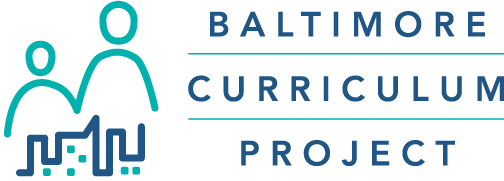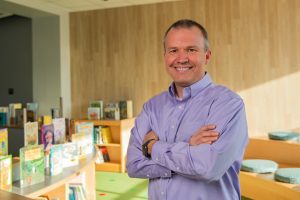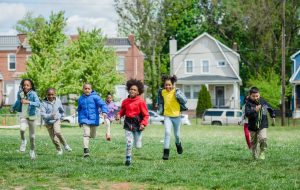 Baltimore Curriculum Project (BCP) schools are neighborhood conversion charter public schools using the community school model. That’s a lot to say. What does it mean for our students, faculty and staff, and parents – and the Baltimore neighborhoods where our six BCP schools are located?
Baltimore Curriculum Project (BCP) schools are neighborhood conversion charter public schools using the community school model. That’s a lot to say. What does it mean for our students, faculty and staff, and parents – and the Baltimore neighborhoods where our six BCP schools are located?
We tapped BCP experts, administrators and Principals who understand what makes BCP schools different from other public schools, to give us their thoughts on BCP’s distinctive model.
What’s the Community School Model?
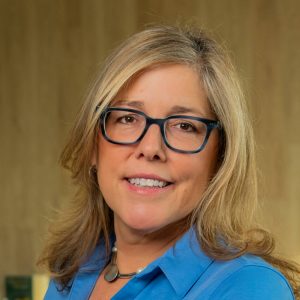
Laura Doherty, BCP President and CEO:
We’re the largest operator of local neighborhood public charter schools in Maryland. All our schools are public schools within the Baltimore City Public Schools system and are free to our students. We work closely with the City Schools to create safe, supportive learning for our students.
What makes BCP unique among other charter schools is that we serve all families living in the school’s neighborhood zone first, then we go to a lottery for children from outside the zone. This means that we’re investing in neighborhood schools and strengthening local communities.
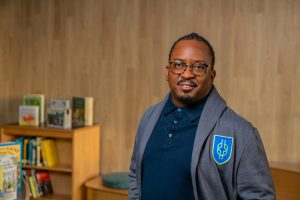 Harold S. Henry, Jr., BCP Director of Schools, former Principal, Frederick Elementary School
Harold S. Henry, Jr., BCP Director of Schools, former Principal, Frederick Elementary School
The community school model, which City Schools started several years ago, is a model in which schools serve as the hub for resources and support for families, students, and the greater community. We partner with lead agencies and nonprofits to provide wraparound services for students and families. When schools are stronger, families are stronger and better supported. The community flourishes and attracts young families and new businesses.
Mark Gaither, Principal, Wolfe Street Academy*:
I’ve been in education for 32 years, and Wolfe Street has been a community school for 17 years. I’ve come to believe that you simply cannot do quality system-wide public education without community schools. It’s fundamental and transformative to our children’s experiences, to our families experiences, and to our staff – everybody who comes in contact with our schools. Our partnerships address all those non-academic challenges that we know kids and families bring to schools. Taking responsibility with a host of other people and advocating as partners for what every child deserves is what community schools are all about.
One of the key aspects of a community school is dedication of resources in the form of a Community School Site Coordinator. This person addresses all the non-academic barriers to learning. If the child isn’t attending school, this Coordinator’s job is to figure out why and then find the resources and partnerships to meet that student’s and family’s needs systemically. This is a process by which you live into and up to the ideals of serving kids’ and families’ needs so that they can enter school on a level playing field. Having this person as an equal partner with BCP principals, school leadership, and teachers fully integrates this role into the life of the school.
When Wolfe Street became a community school in 2006, we focused on attendance and food scarcity. Our Coordinator made connections with families and partnered with neighborhood and community organizations. Then we started with mental health services and enrichment in our afterschool program. It’s grown over two decades to where we are now.
*Wolfe Street Academy was the first school in Maryland to receive an eight-year charter renewal because of its history of success and the strength of its academic performance.
What is Direct Instruction and Why Does BCP Use It?
Laura Doherty:
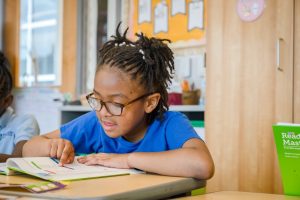 BCP has focused on identifying and implementing proven strategies backed by research. We brought Direct Instruction (DI) to City Schools in 1996. It’s hands down the most effective reading curriculum. We teach every student at our schools through DI. Its effectiveness is supported by over 50 years of research and brain science on how children learn to read.
BCP has focused on identifying and implementing proven strategies backed by research. We brought Direct Instruction (DI) to City Schools in 1996. It’s hands down the most effective reading curriculum. We teach every student at our schools through DI. Its effectiveness is supported by over 50 years of research and brain science on how children learn to read.
Virtually every design element in the program has been validated in the subsequent studies of how students learn to read. More than 500 reports on the effectiveness of the program have been documented. No other reading program even comes close to this level of scrutiny and success.
DI gets our students reading at a quicker pace. DI uses a series of meticulously designed, carefully sequenced lesson plans to provide students with clear instruction. There’s no room for ambiguity or misinterpretation. This also paves the way for accelerated learning, so even students who enter a school year reading below-level make impressive gains. WIth DI, we test the children to see where they are and then move them throughout the year, based on ongoing testing, in small groups through different levels of the program.
Another hallmark of DI and BCP’s program is how we train and support our teachers to be master instructors with DI. Each BCP school has full-time instructional coaches, experienced teachers who are there to help coach and guide. This onsite, full time support covers DI and other subjects as well. We do everything to make sure our teachers succeed, so our students can succeed.
Read Laura’s in-depth blog on Direct Instruction and the science of reading.
Learn about BCP’s instructional coaching program rom Govans Elementary School Principal Bernarda Kwaw.
What is Restorative Practices and What Makes it so Effective?
Todd Wade, Director of Restorative Practices, City Springs Elementary / Middle School:
Restorative Practices, part of the social sciences field, focuses on strengthening relationships between individuals and enhancing the social connections within communities. It’s a highly effective, proven way of handling conflict and solving problems, validated by the International Institute for Restorative Practices and others.
BCP began using it in 2006, first at City Springs Elementary / Middle School and then throughout the BCP network. Baltimore City and County public schools now use it as well. As a lifelong educator, I’ve seen Restorative Practices (RP) transform how students learn and engage with each other. Before coming to City Springs as its first Director of Restorative Practices in 2022. I used RP as a middle and high school language teacher in Baltimore County.
RP is all about root causes – why does a student do what they do? With RP, we don’t attack the action. We work with the student on their motivation for doing that action. It’s a process of teaching students how to think about their actions, problem solve and replace unacceptable behaviors with acceptable behaviors.
One of the things that is so effective and transformative for our schools is how RP creates positive relationships by strengthening communication and promoting accountability and leadership. One of the hallmarks of RP is the use of daily “circles” where classes and other small groups come together to talk about conflict in an atmosphere of mutual respect. We use the same circle approach for groups or individuals to address and discuss specific behaviors.
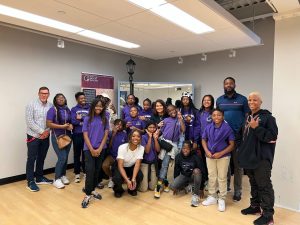
RP gives students a voice and are better able to express themselves through the process. Now, we often have students creating their own circles to resolve conflict with peers. This is giving them the skills they
need for success in high school and beyond. This year, I’ve created a student Peer Mediator program across the BCP schools, training students to serve as RP leaders and facilitate circles and conversations. RP is truly part of our culture and community.
Read more about the effectiveness of RP in BCP schools.
See how SNL cast member Ego Nwodim is inspiring City Springs’ students to use improv as a tool for better communication and problem-solving
